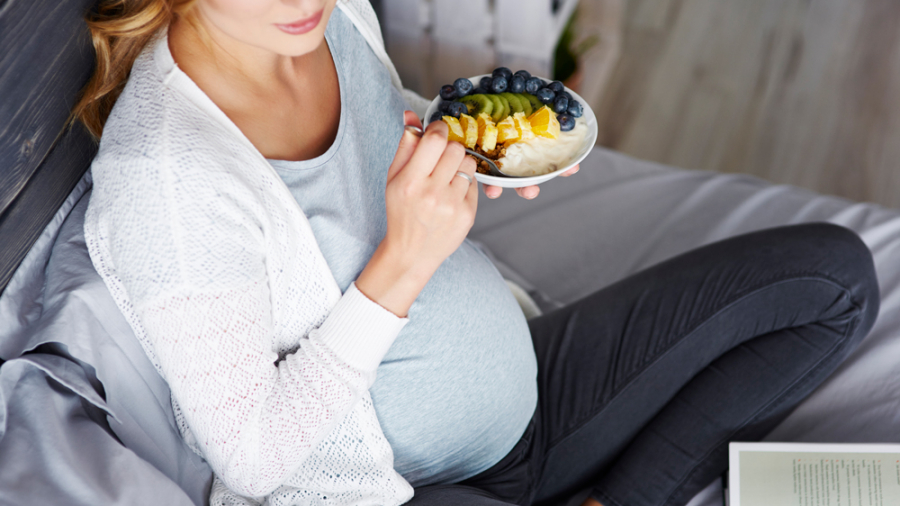Pregnancy is a meaningful period for a lot of women. If you are pregnant right now, you are surely aware that your body is undergoing several physical and hormonal changes. You’ll need to make good dietary selections from a range of sources to nourish yourself and your developing baby.
Why is it important to get the essential nutrients during pregnancy? It’s because the food you eat will be the baby’s main source of nourishment. Good diet will help you deal with the additional demands on your body as your pregnancy grows. The aim is to strike a balance between eating enough nutrition to support your fetus’ growth and keeping a healthy weight.1
What should I eat?
The classic cliché “eating for two” isn’t totally accurate, but you do need additional micronutrients and macronutrients to fuel you and the baby.
Micronutrients are dietary components like vitamins and minerals that are only needed in small amounts.
Macronutrients are nutrients that give energy in the form of calories – carbohydrates, proteins, and lipids are all important.
Here is a list of some of the nutrients that you need, through food or via supplements:
Folate
Folate, also known as folic acid, is essential in lowering the incidence of neural tube abnormalities, like spina bifida and anencephaly. These are significant birth abnormalities that impair the baby’s brain and spinal cord.
It is suggested that you consume 600 to 800 mcg of folate when pregnant.2 Other than folic acid supplements, you can also increase your folate intake through eating folate-rich foods, like a variety of vegetables (asparagus, spinach, and broccoli) and fruits (such as oranges, bananas, and strawberries) as well as legumes (such as chickpeas, dried beans, and lentils), cereals, and nuts.
Iron
The demand for iron increases significantly during pregnancy, as maternal blood volume rises by around 45 percent.3 Iron increases blood flow by reacting with salt, potassium, and water. This helps to ensure that both you and your baby get adequate oxygen.
You should receive 27 mg of iron each day, preferably with some vitamin C to help with absorption.
Calcium
Because your body cannot produce calcium, you must obtain it through food or supplements.4 Calcium aids in the formation of your baby’s bones and controls the fluid balance in your body.
Pregnant women require 1,000 mg of calcium every day.5 You will most likely want more calcium to enhance your normal prenatal supplements. Calcium is abundant in dairy products such as milk, cheese, and yoghurt.
Protein
Protein is essential for the healthy development of a baby’s tissues and organs, including the brain. It also aids in the formation of breast and uterine tissue during pregnancy. It even helps to increase your blood supply, allowing more blood to be transferred to your baby.
During each trimester of pregnancy, your protein requirements grow. Depending on your weight and trimester, you’ll need to consume 70 to 100 g of protein every day.6
Good sources of protein include lean beef, chicken, salmon, nuts, peanut butter, cottage cheese, and beans.
Choline
Choline is a vitamin-like essential nutrient that is involved in a variety of physiological activities, including neurotransmitter synthesis in the brain. It is also required for the production of phospholipids, which aid in the formation of cell membranes.
Choline is essential for the development of the foetal brain, particularly the memory centre. It can also affect cognition later in life, which is beneficial to the ageing brain.
You’d need 450 mg of choline per day, and some of the finest sources include eggs, lean steak, salmon, chicken, broccoli, and cauliflower.7
Food Fix: A Simple Guideline
It is important to always stick to your doctor’s advice when it comes to your diet in pregnancy. As a general recommendation, here is a list of what you should consume and what you should avoid8:

Eat these:
- Protein with every meal and snack
- Whole grains
- Five or more servings of fruits and vegetables per day
- Dairy products or high calcium foods
- Foods with essential fats
- Prenatal vitamins

Avoid these:
- Alcohol
- Excessive caffeine
- Raw meats and seafood
- High-mercury fish
- Uncooked processed meats
- Unpasteurized dairy
Elken Spirulina
For some women, it can be difficult to meet the nutritional requirements during pregnancy. Thankfully, Elken Spirulina can be a good source of nutrients, as Spirulina plays an important role for women who are preparing to conceive, during pregnancy, breastfeeding, and for babies in their infancy and toddler stages.
Known as the Superfood for achieving good health and energy, Elken Spirulina has a rich concentration of nutrients like protein (amino acids), vitamins, minerals, carbohydrates, essential fatty acids, chlorophyll, beta-carotene, phycocyanin, and xanthophyll that are readily digested and assimilated.
Certified organic and halal, Elken Spirulina has been a trusted product of many for 20 years and counting, and is also the recipient of 9 international accolades.
To learn more about Elken Spirulina, please go to https://www.elken.com/health-wellness/spirulina/

Sources:
1 https://www.acog.org/womens-health/faqs/nutrition-during-pregnancy
2 https://www.healthline.com/health/pregnancy/nutrition#what-to-eat
3 https://www.ncbi.nlm.nih.gov/pmc/articles/PMC4928162/
4 https://www.webmd.com/baby/get-the-calcium-you-need-during-pregnancy#1
5 https://www.ncbi.nlm.nih.gov/pmc/articles/PMC5561751/
6 https://pubmed.ncbi.nlm.nih.gov/25527661/
7 https://www.whattoexpect.com/pregnancy/diet/pregnancy-nutrition-chart/
8 https://www.healthline.com/health/pregnancy/nutrition#takeaway

